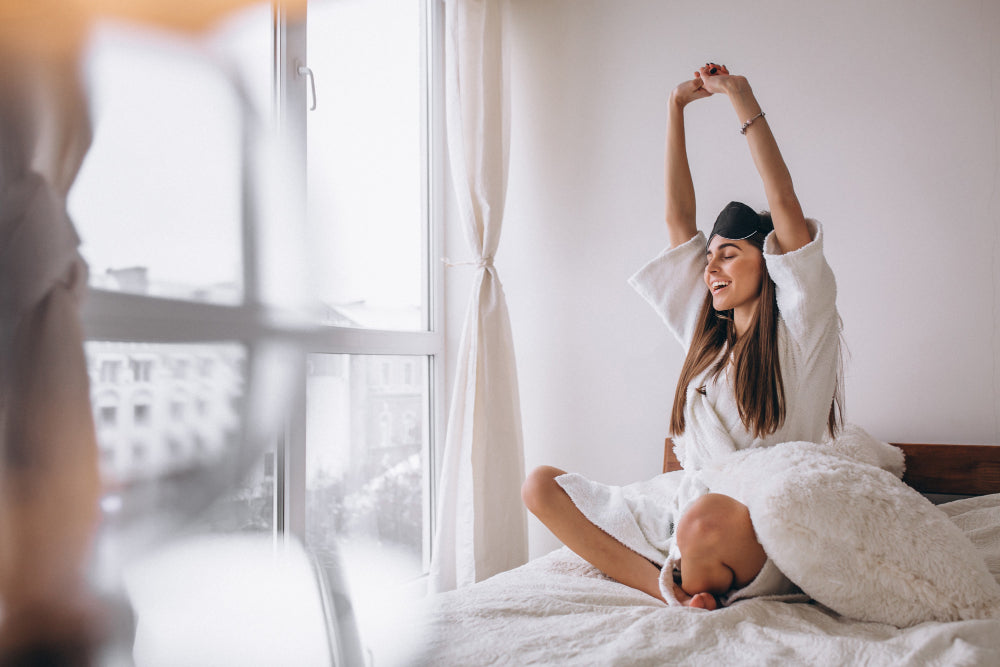We’ve all been there. The alarm goes off, you roll over, and... ouch. Your back aches, your neck feels like it spent the night in a wrestling match, and your hips are mysteriously sore. You didn’t run a marathon in your dreams, so why do you feel like you’ve aged 20 years overnight?
Morning stiffness is a real thing—and no, it's not just because you're "getting older." There's a whole mix of subtle factors at play, from how you're sleeping to the position your spine is stuck in for 7+ hours. But the good news? Once you understand what's going on, it's totally fixable.
Let’s break it down (gently... because we’re sore, remember?).
1. Your Sleeping Position Could Be Sabotaging You
Believe it or not, the way you curl up in bed could be the root of your daily stiffness. Sleeping on your stomach? That’s a big red flag. It puts pressure on your lower back and forces your neck into a twisted position. Side sleeper? That’s better—but only if your spine is aligned and your knees are supported. Back sleepers? Gold star… if you’re doing it right.
Problem is, most of us just crash at the end of the day without giving much thought to how our body is actually resting. You wouldn’t sit hunched over for 8 hours on the couch and expect to feel great afterward—so why do we do that in bed?
2. Your Mattress and Pillows May Be the Silent Culprits
A mattress that’s too soft or too firm can throw your body out of whack. But what most people overlook are their pillows. Your neck, back, knees, and hips need proper support while you sleep. And no, a single pancake-flat pillow you’ve had since college doesn’t count.
This is where ergonomic support becomes a game changer. Using a wedge pillow set to elevate your legs, support your spine, or gently lift your upper body can completely transform how your body feels in the morning. Not only does it align your spine, but it also promotes circulation and reduces pressure on joints—all while you’re snoozing away.
And let's be honest, anything that helps us feel refreshed without adding something new to our to-do list is a win, right?
3. Your Body Is Healing While You Sleep (But That Can Hurt)
During deep sleep, your muscles and joints recover from everything you’ve put them through that day—yes, even if all you did was sit at a desk and scroll Instagram. As your body cools down and becomes less active, joint fluid thickens and muscles tighten up. It’s part of the natural repair process.
But if you're sleeping in a way that stresses certain joints or compresses nerves? Morning stiffness becomes your wake-up call—literally.
4. The Fix: Make Sleep Work For You, Not Against You
Okay, so now we know the culprits. What’s the fix?
Here’s your morning-stiffness survival plan:
-
Support your body, head to toe: Use a proper wedge pillow system that supports your neck, back, and knees. The goal is to maintain a neutral spine while you sleep—just like how chiropractors tell you to sit during the day.
-
Stretch before bed: A few gentle yoga moves or even some light mobility stretches can help loosen tight muscles and prep your body for rest.
-
Keep it cool: A slightly cooler room temperature can reduce inflammation and promote deeper sleep.
-
Stay hydrated: Dehydrated joints are unhappy joints. Drink a glass of water before bed (just not too much unless you love late-night bathroom trips).
-
Be consistent: Your body loves routine. Going to bed and waking up at roughly the same time each day helps regulate your natural repair cycle.
The Real-World Upgrade: Sleep Smarter, Not Harder
Here’s where things get real. One of the most life-changing upgrades people report is switching from their old, lumpy pillows to a thoughtfully designed orthopedic wedge pillow set—like the multi-layered ones from Lunix. It’s not just about comfort—it’s about aligning your body so it can truly rest and recover.
The right wedge pillow setup allows your muscles to relax and your joints to decompress. You wake up less stiff, more refreshed, and maybe even a little surprised at how good you feel.
(And yes, you’ll still need coffee. But maybe just for fun, not survival.)
Final Thought: You Deserve to Feel Good in the Morning
Life is hectic. You’re juggling work, family, responsibilities—and sleep is your chance to recharge. You don’t have to wake up feeling like you ran a marathon in your dreams.
Take the time to rethink your sleep setup. Support your body the way it deserves. Because the best mornings start the night before.





